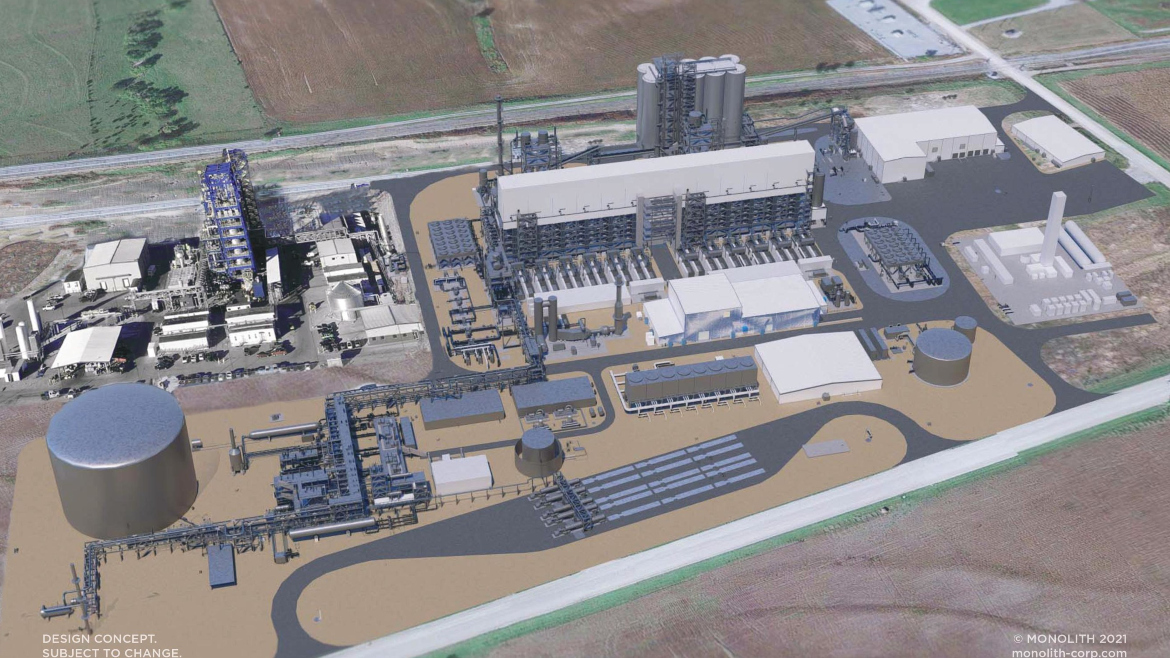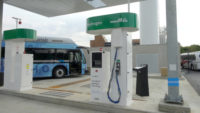Monolith, a Nebraska-based clean materials producer, has received conditional approval from the U.S. Dept. of Energy for a $1.04-billion loan to expand its hydrogen and carbon black production facilities.
Kiewit is expected to build the expansion at Monolith’s Olive Creek plant in Hallam, Neb., and to provide engineering and procurement services for the project, although the contract has not been finalized. The companies have been working on front-end engineering and design for the project.
Officials from DOE and Monolith announced the conditional approval on Dec. 23, with construction set to start in 2022. Monolith says the project would support about 1,000 jobs.
Depending on its ability to meet DOE conditions, Monolith said it would receive the 20-year loan under DOE's Title XVII Innovative Energy Loan Guarantee Program, which guarantees loans for projects aimed at cutting greenhouse gas emissions and supporting clean energy.
DOE says this is the first non-nuclear power project to receive a conditional commitment from that program since 2016.
It also would be the first commercial-scale application of methane pyrolysis, which superheats renewable natural gas to break the bonds between carbon and hydrogen to produce hydrogen and carbon black, most well-known for its use in tires. DOE says the process could reduce carbon emissions from hydrogen and carbon black production by 80% compared to traditional methods.
Monolith estimates that the technology could prevent 2.3 tons of carbon dioxide from being released for every ton of carbon black it produces.
Rob Hanson, Monolith CEO and cofounder, said the company’s technology will play a role in 2050 decarbonization goals. “Monolith's pyrolysis technology will play a vital role in the energy transition,” he said in a statement.
The expansion will increase Olive Creek's output by up to 13 times compared to the existing facility, making it the largest carbon black plant in the U.S., capable of producing 194,000 metric tons per year, Monolith says. Most of the hydrogen produced will be used for cleanly-made ammonia for fertilizer.
“Advanced, clean production technology like Monolith's are the types of impactful projects that support not just sustainability, but economic growth and clean energy jobs for the American people,” Energy Secretary Jennifer Granholm said in a statement.






Post a comment to this article
Report Abusive Comment